A struggle erupts between two groups, ‘police’ and ‘villagers.’
“Knock it down! Knock it down!” the police yell.
The villagers protest, scrambling to push the police back. “No! These are our homes!”
The villagers abruptly sit down, forming a sort of human barricade to block their homes from destruction, while the police fire tear gas and bring their bulldozer around the to other side of the village, totally bypassing the residents. Arrows are flung and one hits a police officer in the leg.
The scene outlines the events that unfolded in Kampung Bugis, Serangan Island, Bali on Jan. 3, 2017. But the face-off we’re describing actually happened later, during a reenactment played out many times, over and over again, by the refugee children of Kampung Bugis.
The children, who were kicked out of their own village and made to watch while their homes were bulldozed to the ground, have been reliving their trauma. They’ve made it into a game as a way to process the pain.
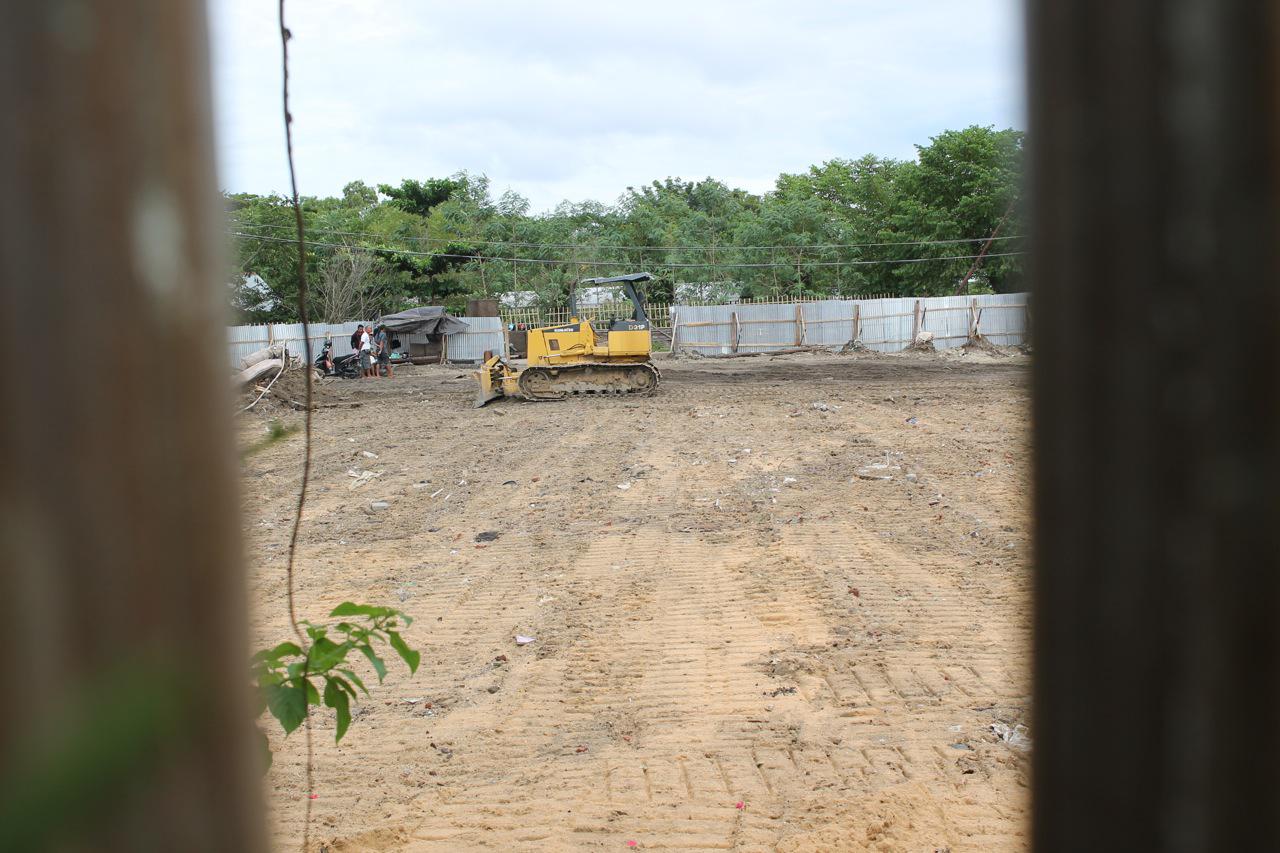
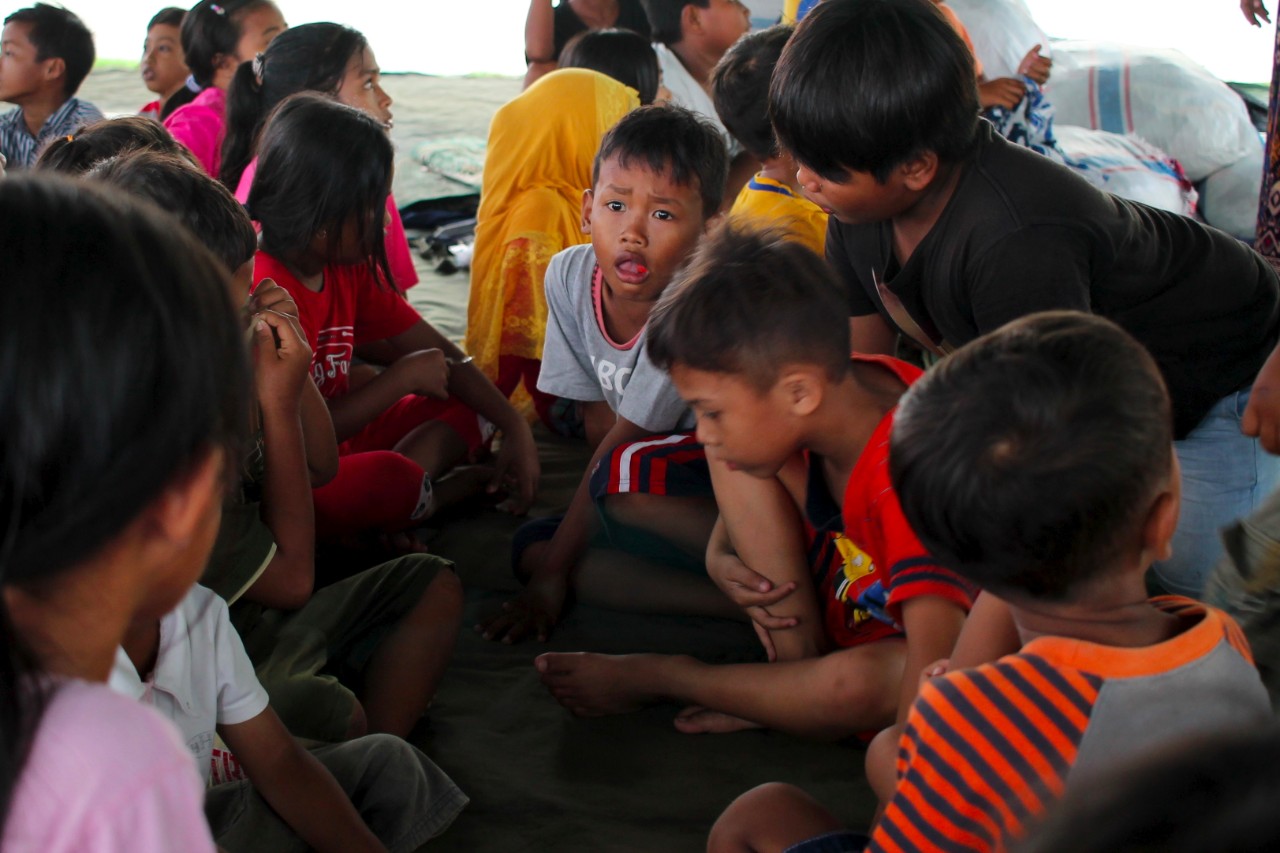
An island of ‘boogie men’, their families and children
You may have heard of Serangan Island before. It’s a small island, south of Bali’s capital city of Denpasar, bordering Benoa Bay. It’s a spot popular for surfing, seafood and its turtle conservancy, but it’s arguably best known for its failed reclamation project in the 90s that left it a sandy wasteland with a small population of local residents.
Until Jan. 3, 2017, the island was home to 36 families of Bugis descent, many of whom made a living through fishing, residing on little more than a hectare of land.
The Bugis are an ethnic group originally from the island of Sulawesi in eastern Indonesia. Their claim to fame dates back to the time of the European colonization of Indonesia’s Spice Islands. A seafaring people, the Bugis were notorious for piracy. Folklore has it that ill-behaved European children would be told to “behave” or else “beware the Bugis man,” which eventually evolved to “boogie man.”
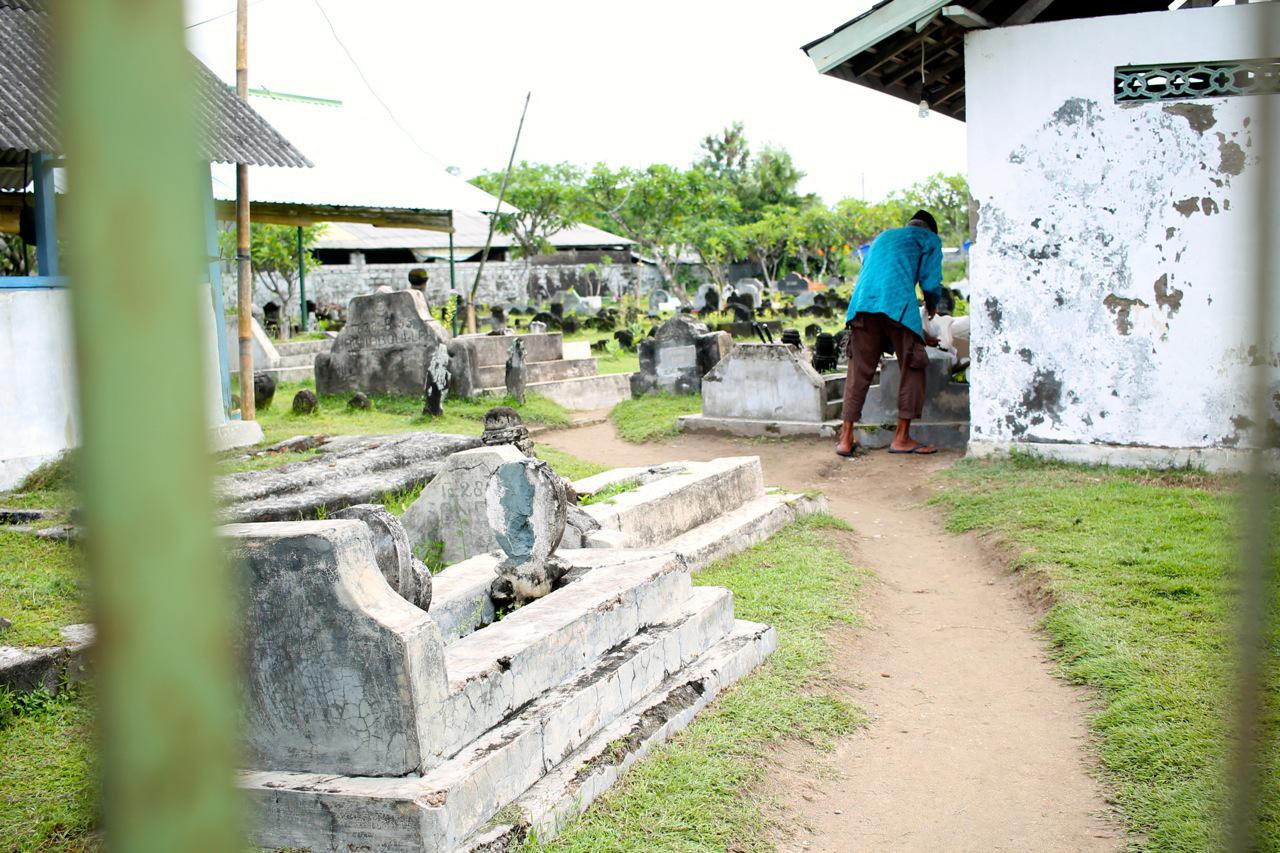
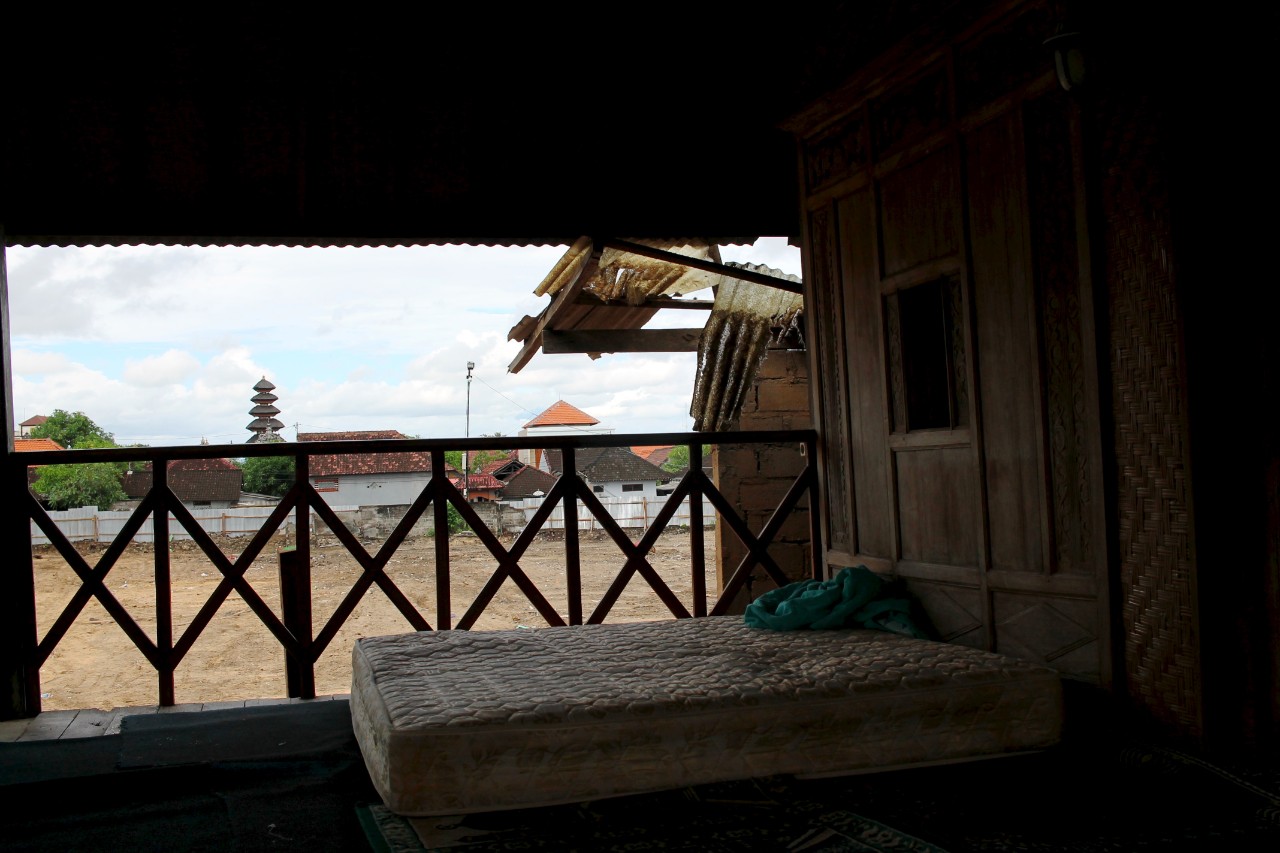
The Bugis families of Serangan had come over from their native Makassar hundreds of years ago, long before there was a bridge connecting the small island to Bali, and built up a village with permission from the local Bali kingdoms.
Today, the Bugis language is still their mother tongue. It was only sometime during the Suharto era, when nationalization and land titling became the status quo, that one of the families inhabiting Kampung Bugis was put on the deed.
Their homes, their village, their lives – all gone in one horrible day
Fast forward to Jan. 3, 2017, when the family holding the deed to the land of Kampung Bugis decided to evict the rest of the village and claim the land for themselves, backed up by a ruling from Indonesia’s Supreme Court and muscle from the police.
All the homes in the kampung were bulldozed on the spot.
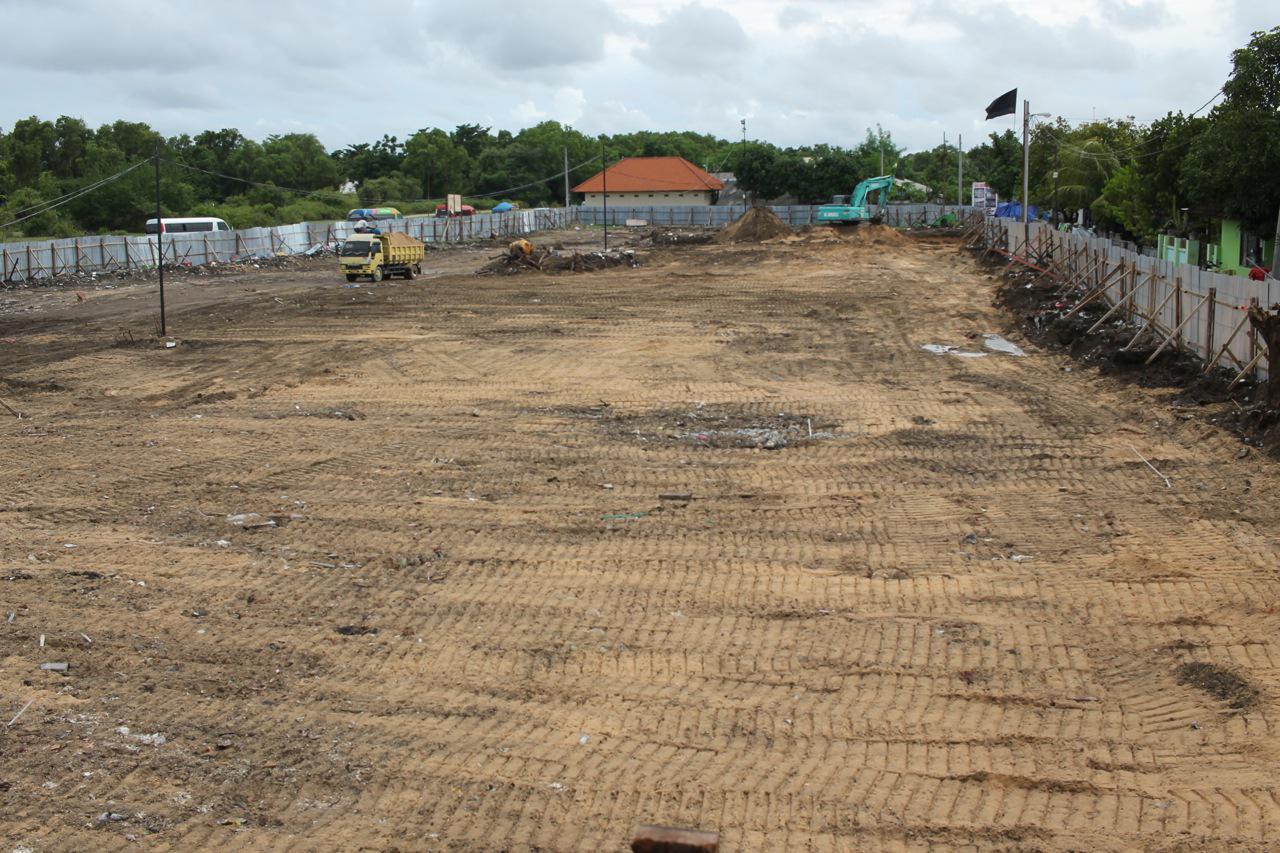
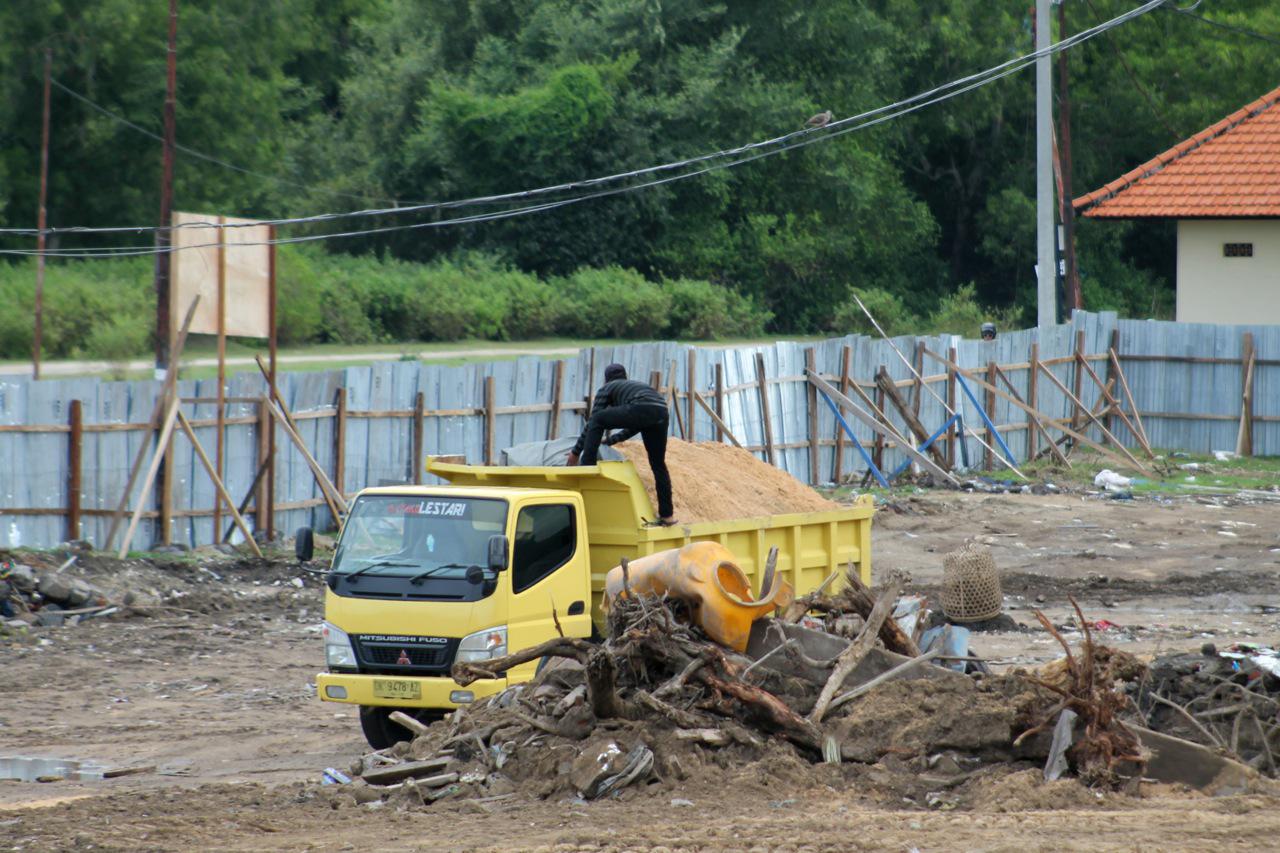
Evicted residents told Coconuts Bali that the holder of the land was a Bugis family which had grown bigger over the years and that they had demolished the village so that they could take over the land for their personal use.
But it’s not clear yet at this time if there’s might be a more sinister purpose behind the evictions. There are those who speculate the family has plans to turn around and sell the land to the highest bidder, as happens so often in Bali.
Their homes gone, the Kampung Bugis families took refuge in the neighborhood mosque and set up tarp shelters in the public square.

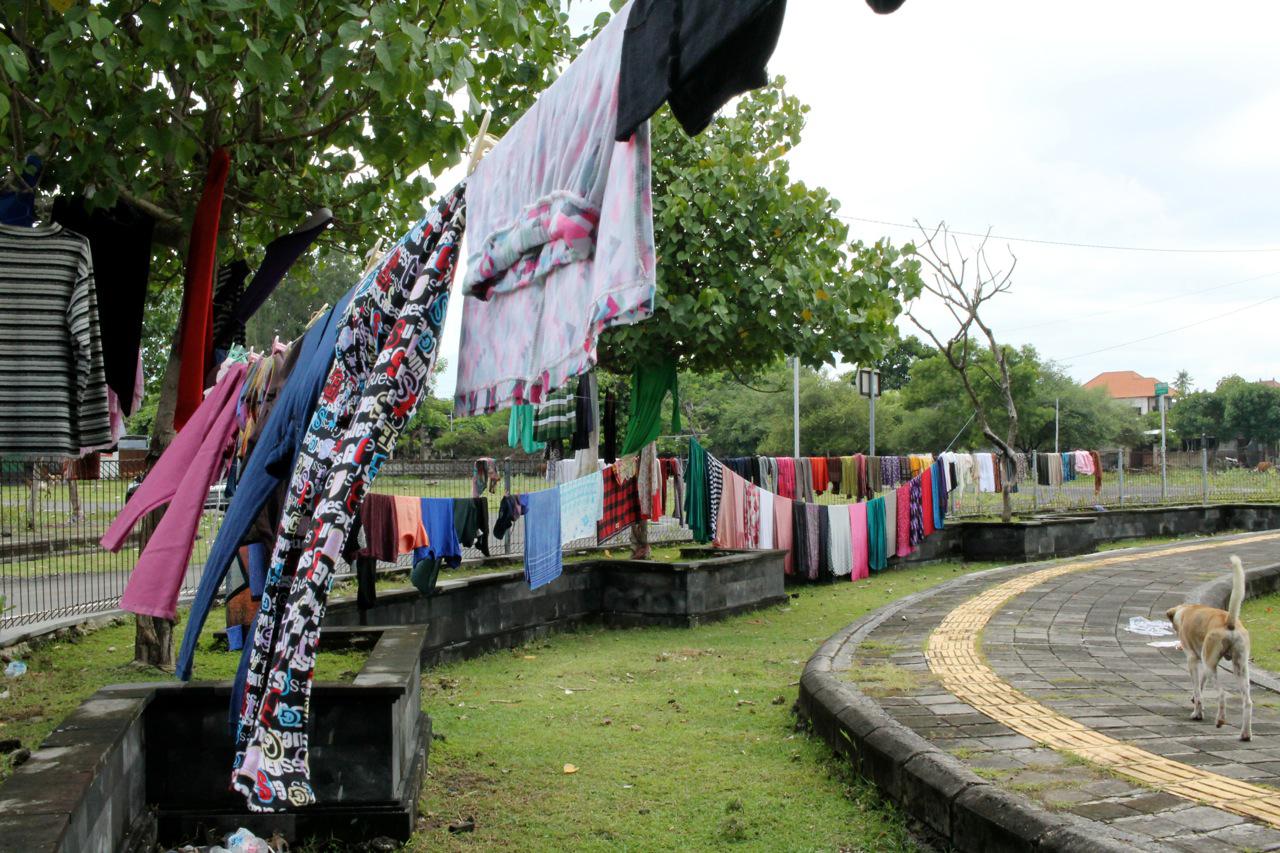
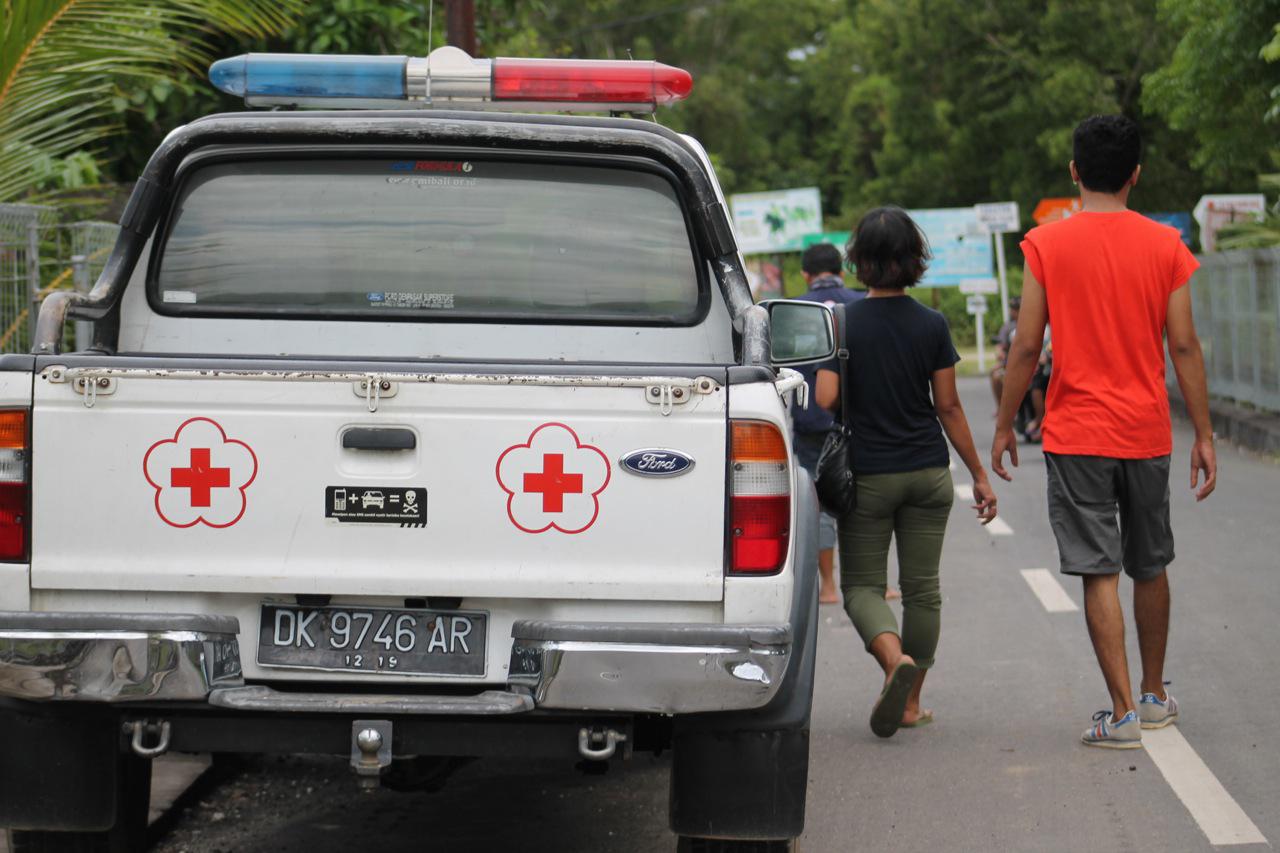
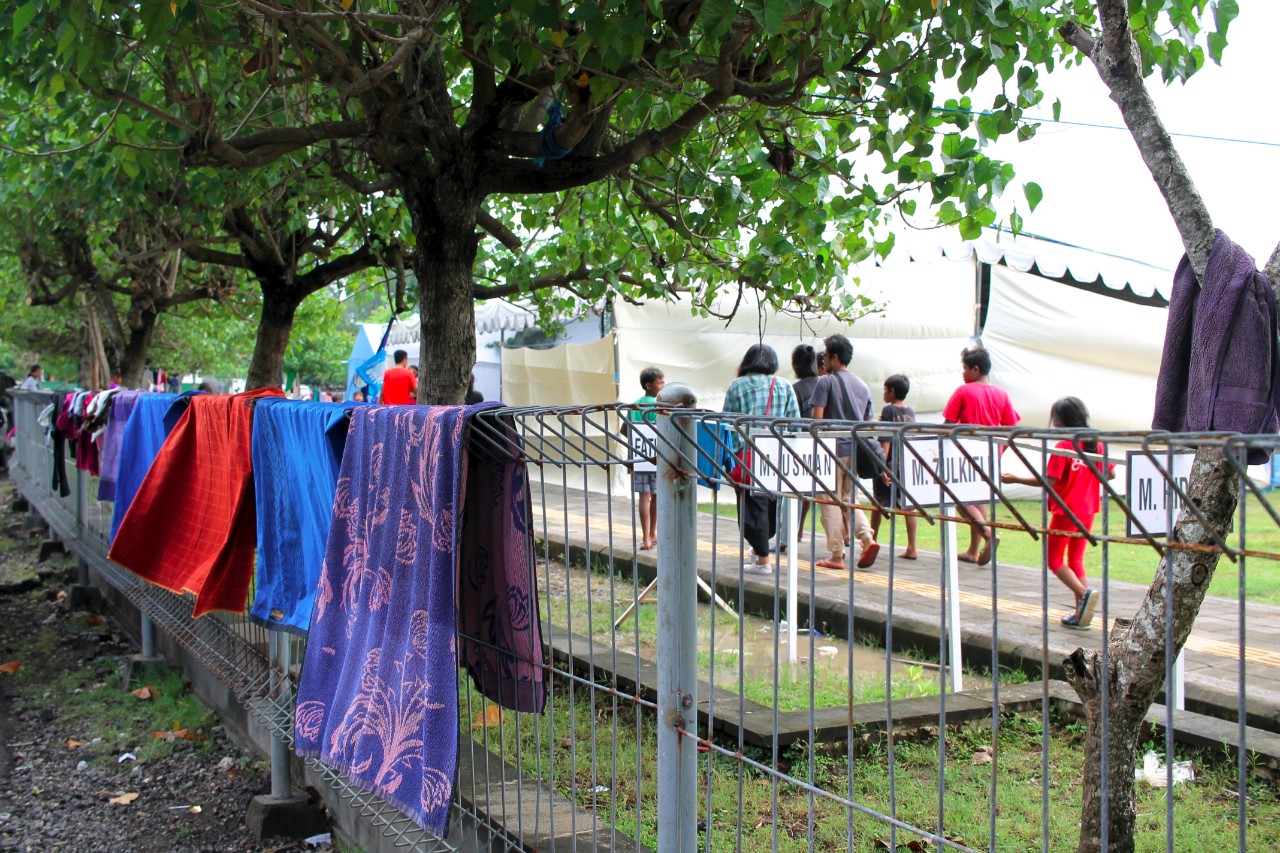
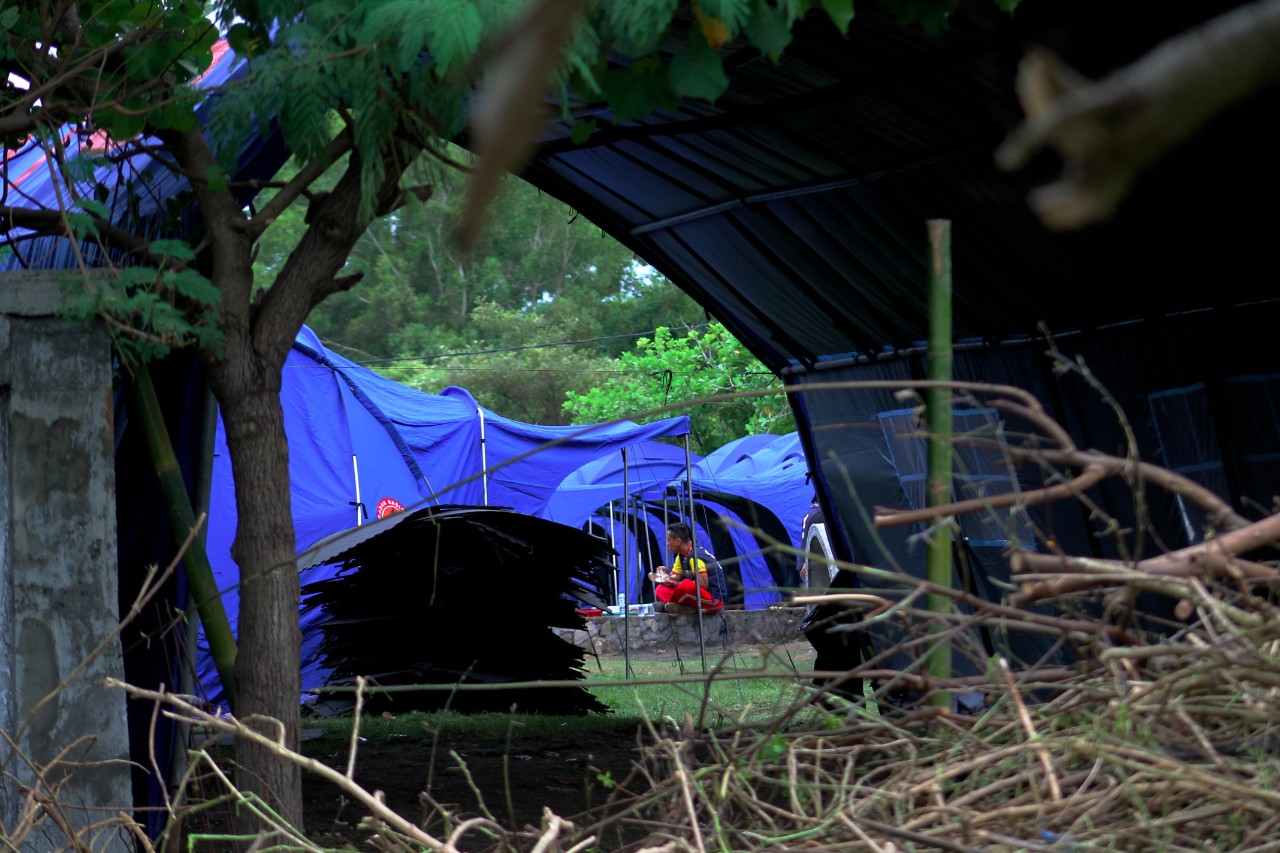
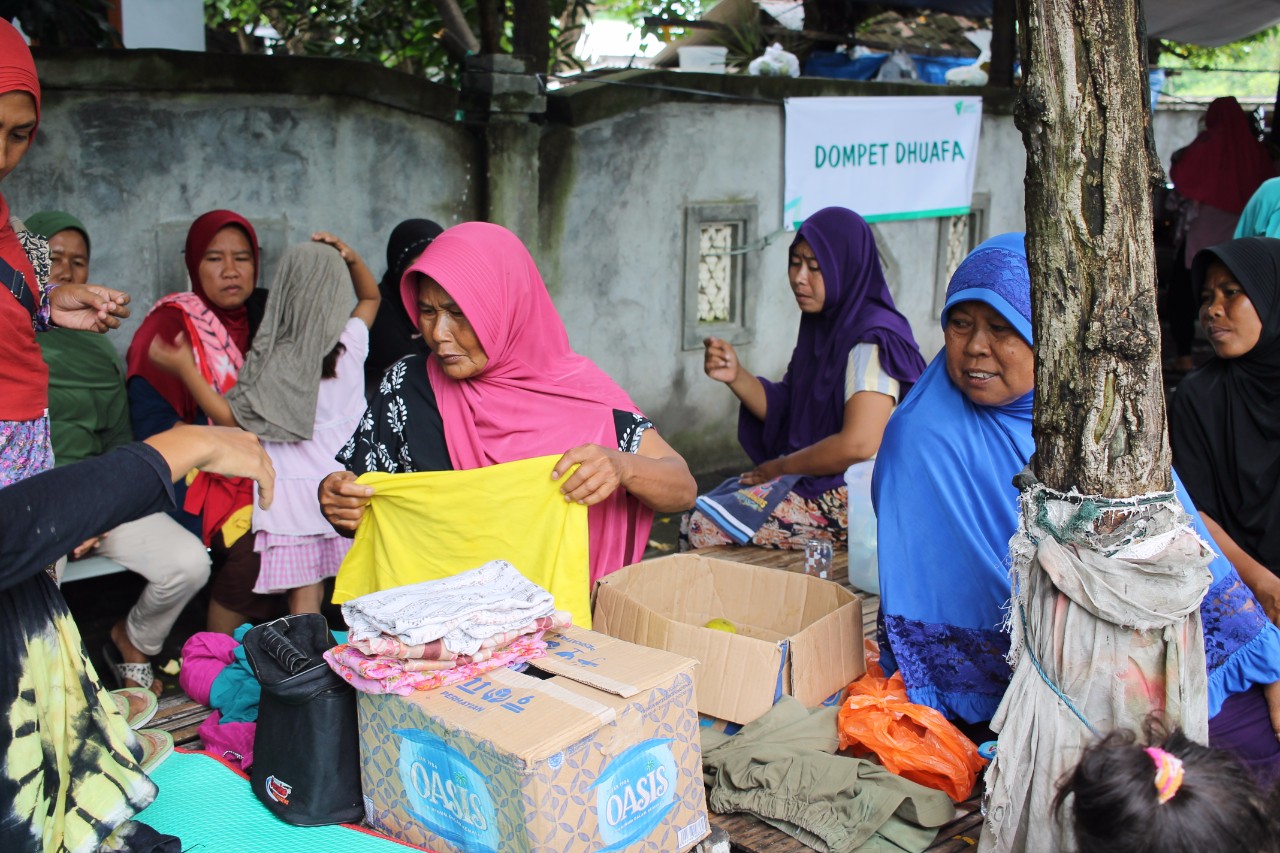
The situation is a tricky one because it is essentially a conflict between private citizens and not the government (which is probably why the military hasn’t made an appearance). But the fallout from the eviction was so tumultous that the National Disaster Mitigation Agency (BNPB) and volunteers from the Indonesian Red Cross (PMI) promptly arrived on Jan. 4, the day after the eviction, to help the newly homeless families.
BNPB and PMI have been working nonstop to make sure the families have first aid and enough supplies. They have also been setting up new tents, one per family, that even have electricity.
Playing eviction and keeping busy
Though their physical needs are being met, it seems clear that most of the families children have suffered deep emotional wounds.
The children, who before the evictions were not poor by any means, were left totally uprooted and suddenly homeless. You don’t have to be a psychologist to understand why they would begin playing a game reenacting their eviction and the destruction of their village shortly after the real-life event. It’s a lot of trauma to process in a short amount of time, especially for a small child, and the game offered them a way of understanding their new situation.
At least three young volunteers we met on Jan. 22 in Serangan, told Coconuts Bali that hearing this story is why they had to get involved.
Dozens of unofficial volunteers, many of whom are 20-something-year-olds, have been visiting Kampung Bugis to run activities for the kids. Different groups of friends, and friends of friends, communities, and clubs have all been offering a helping a hand.
For instance, Slamet, one particularly proactive young man from Malang, got involved helping the kids of Kampung Bugis after Pak Geger, who he knew from Aremania (a football fan club) invited him along. Geger, a Sanur resident, was one of the first people to come to the kampung after the eviction and see what could be done as well as volunteer his time.
From setting up movie nights to playing instruments and conducting photography workshops, the volunteers have been trying to keep the kids busy, keep them distracted, and hopefully give them a little bit more structure in their lives—though thankfully the kids are still going to school during the day.
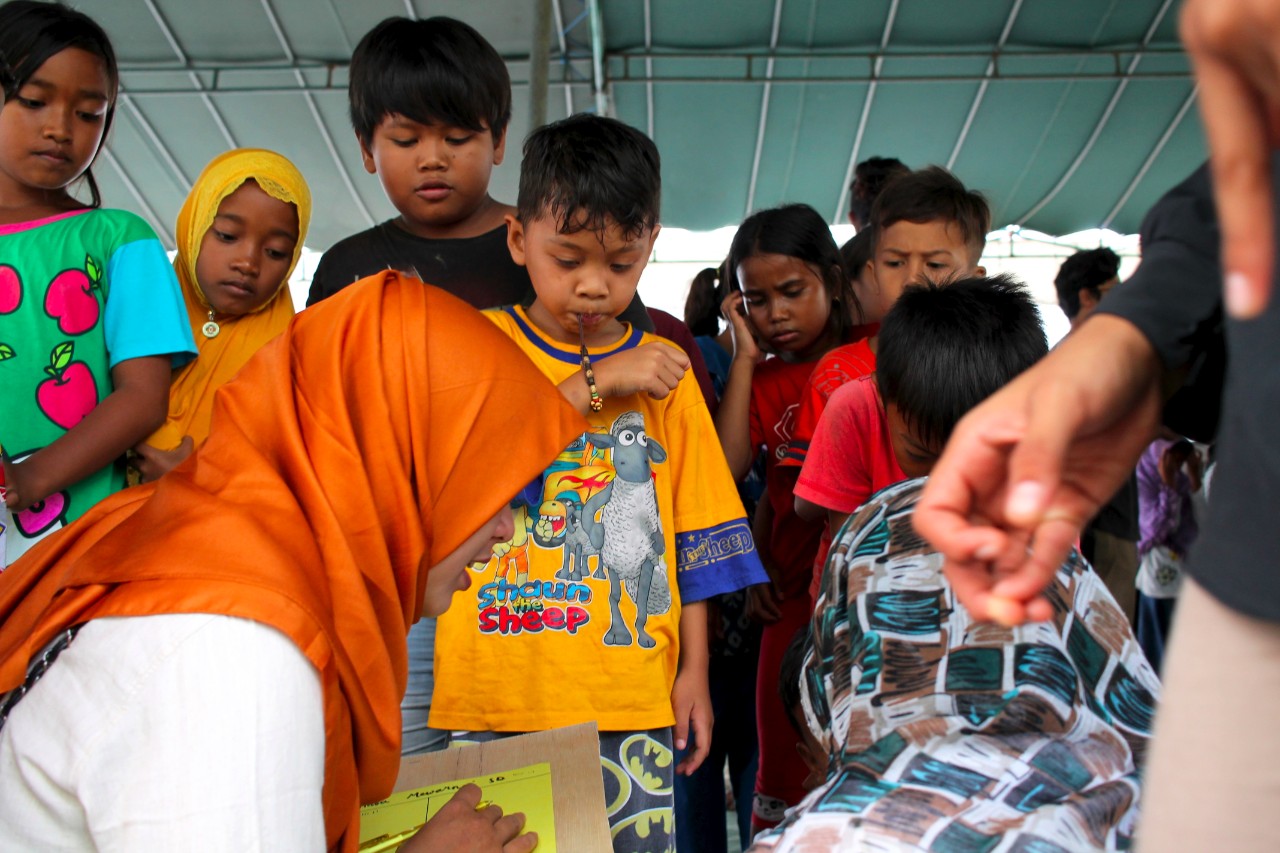
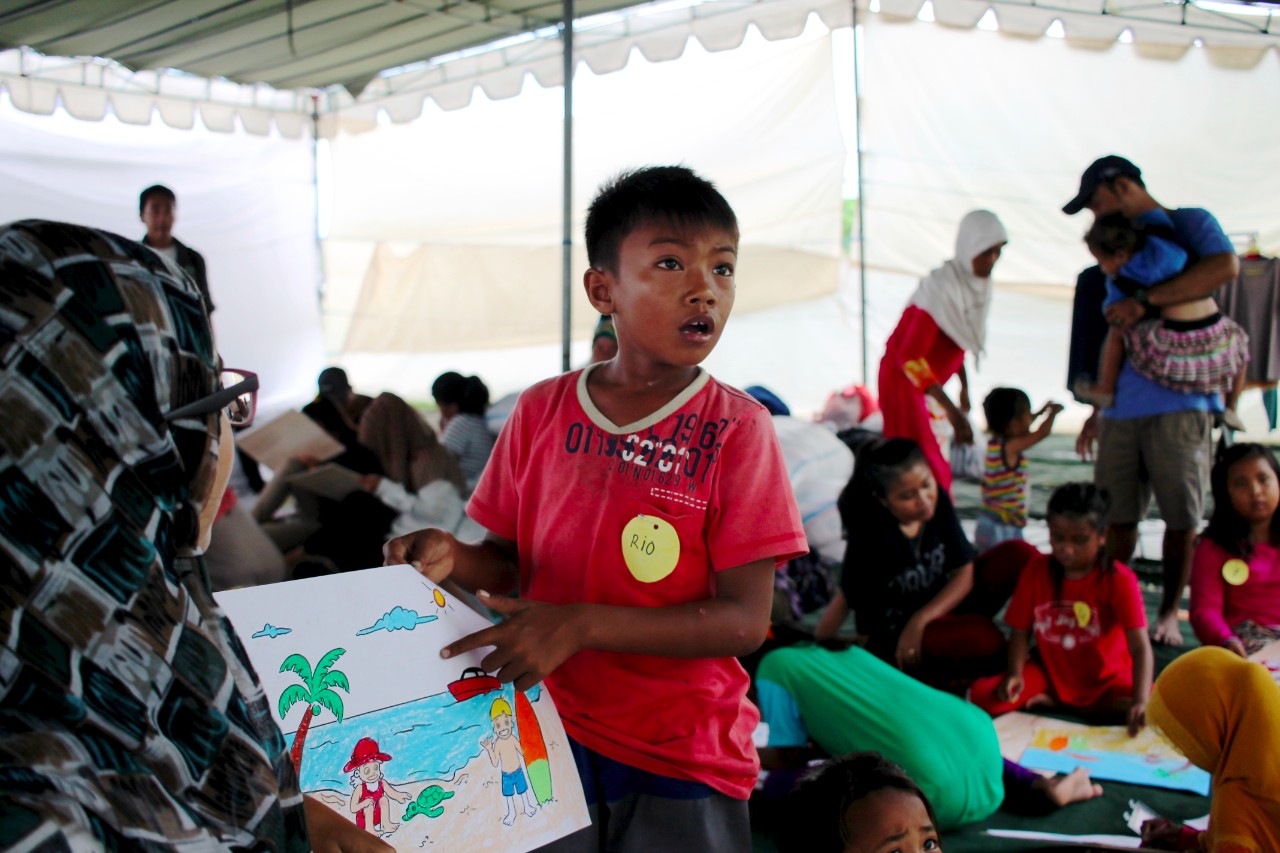
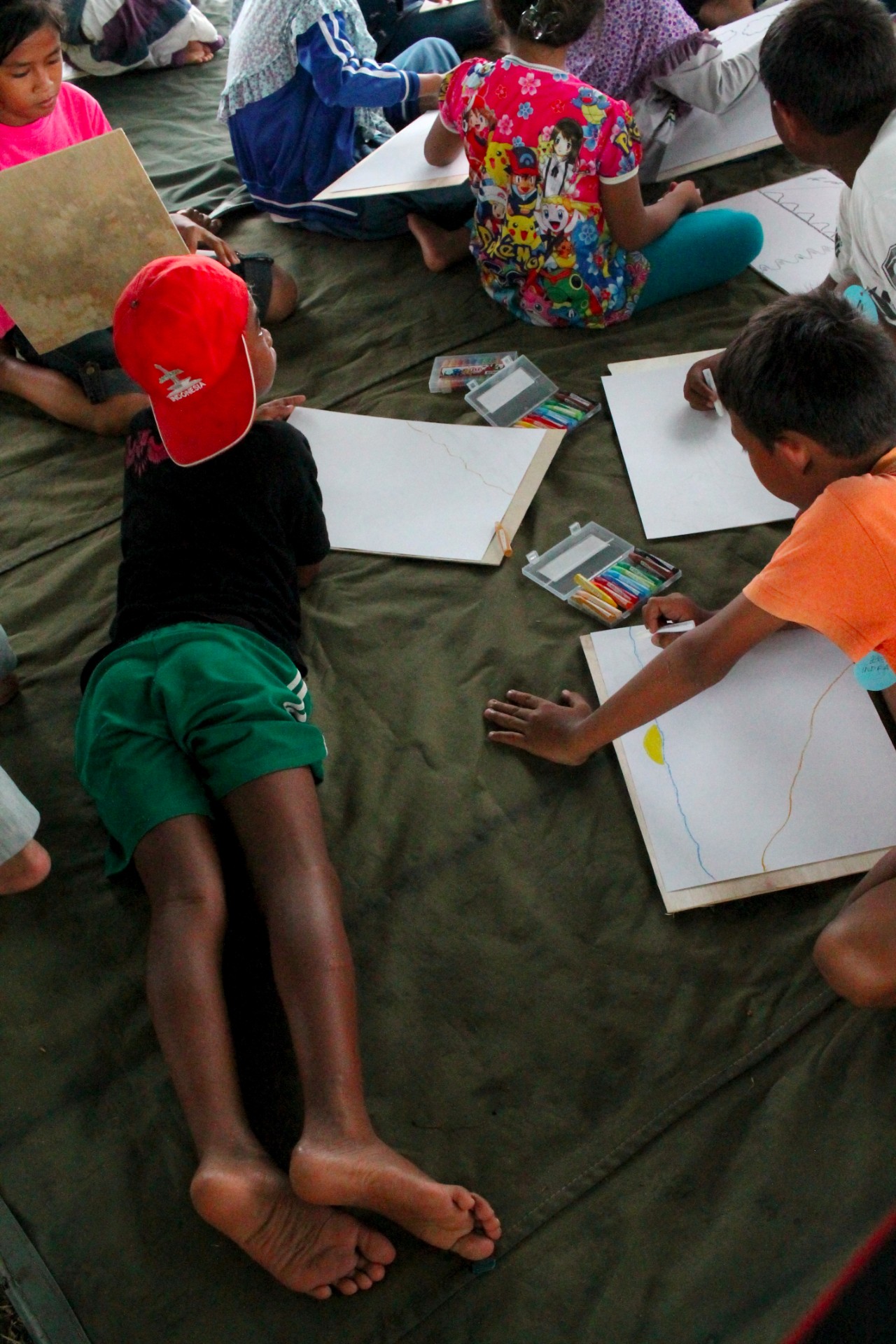
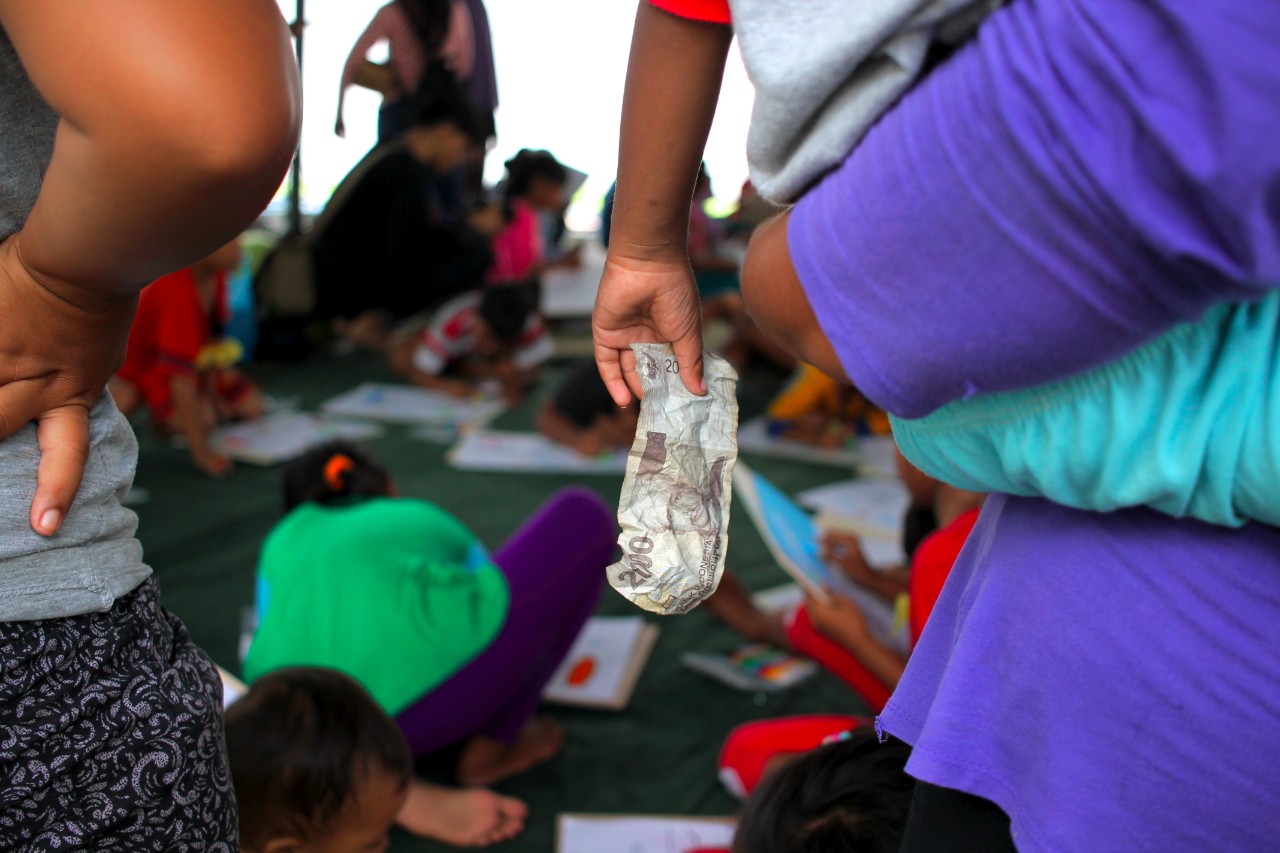
It’s not the most organized system, but it seems to work. Volunteers don’t have set days when they need to show up; instead coming when they are able. On the day we visited, the activity was coloring. With everyone set up in the “town hall,” a larger tent popped up in the middle of Serangan’s public square, the younger kids were handed giant coloring sheets depicting a relaxed tropical scene, which could be any beach in Bali, while the older kids got to draw whatever they wanted. As all the volunteers circulated around and sat down, you could tell the kids were thrilled by all the attention.
And, for just a moment, they seemed to forget all about losing their homes and villages. Instead, all of their focus was on their crayons and competing to make the ‘best’ pictures.
A ‘humanitarian tragedy’ that could lead to more
Kampung Bugis was by no means Indonesia’s first mass eviction and demolition in which landholders made an entire village worth of people hopeless in one fell swoop. Similar evictions have taken place all throughout the country.
But the way in which Serangan was handled made it especially horrible, says PMI official Agus Bambang Priyanto.
The fact that this was done during rainy season, made it “totally inhumane”, says Priyanto, who is known for his major role in evacuating victims from the deadly 2005 Bali bombing.
The families had basically zero warning and were left without a roof over their heads to deal with the rain. While sturdier BNPB-issue tents have recently been set up for the evicted villagers, there was a two-week period where the mosque, tarps, and flimsy tents which were prone to the elements were all the villagers had.
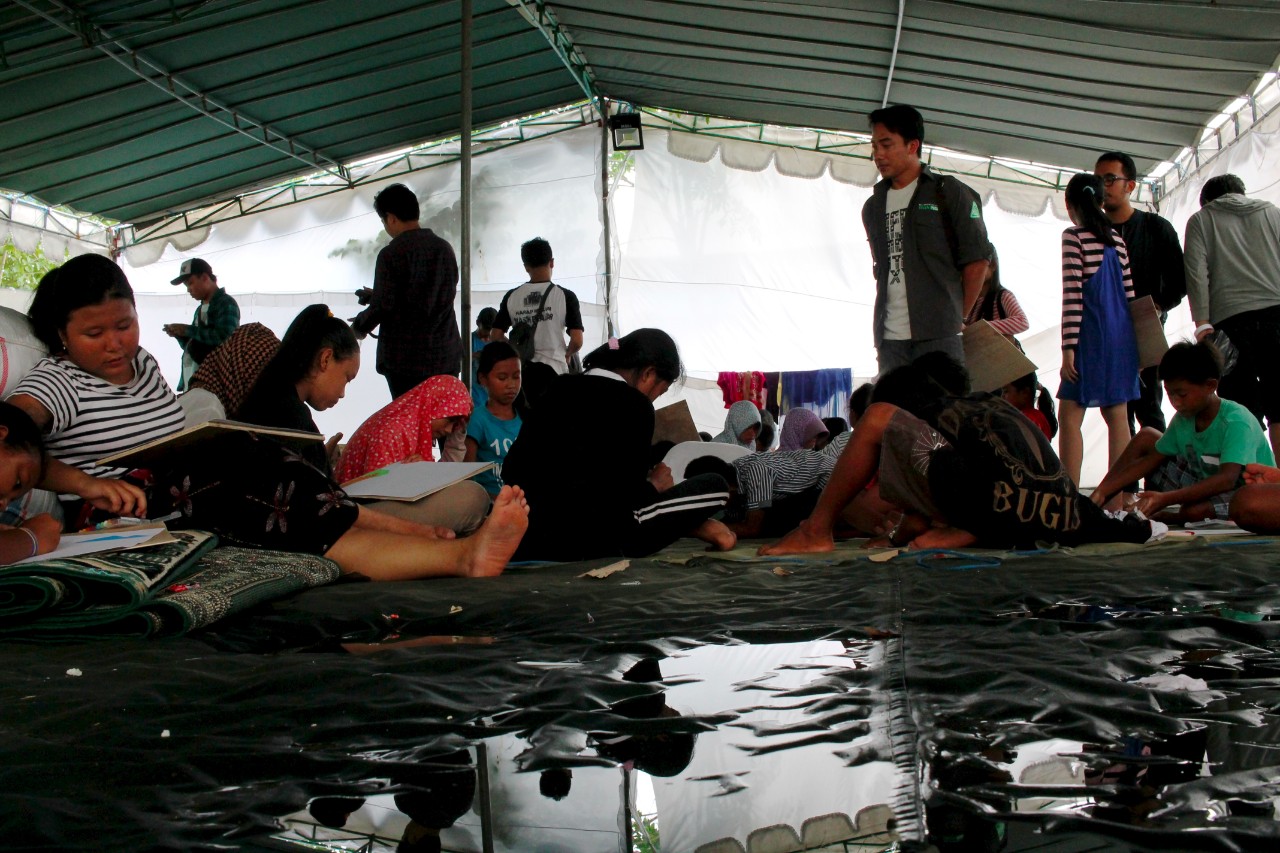
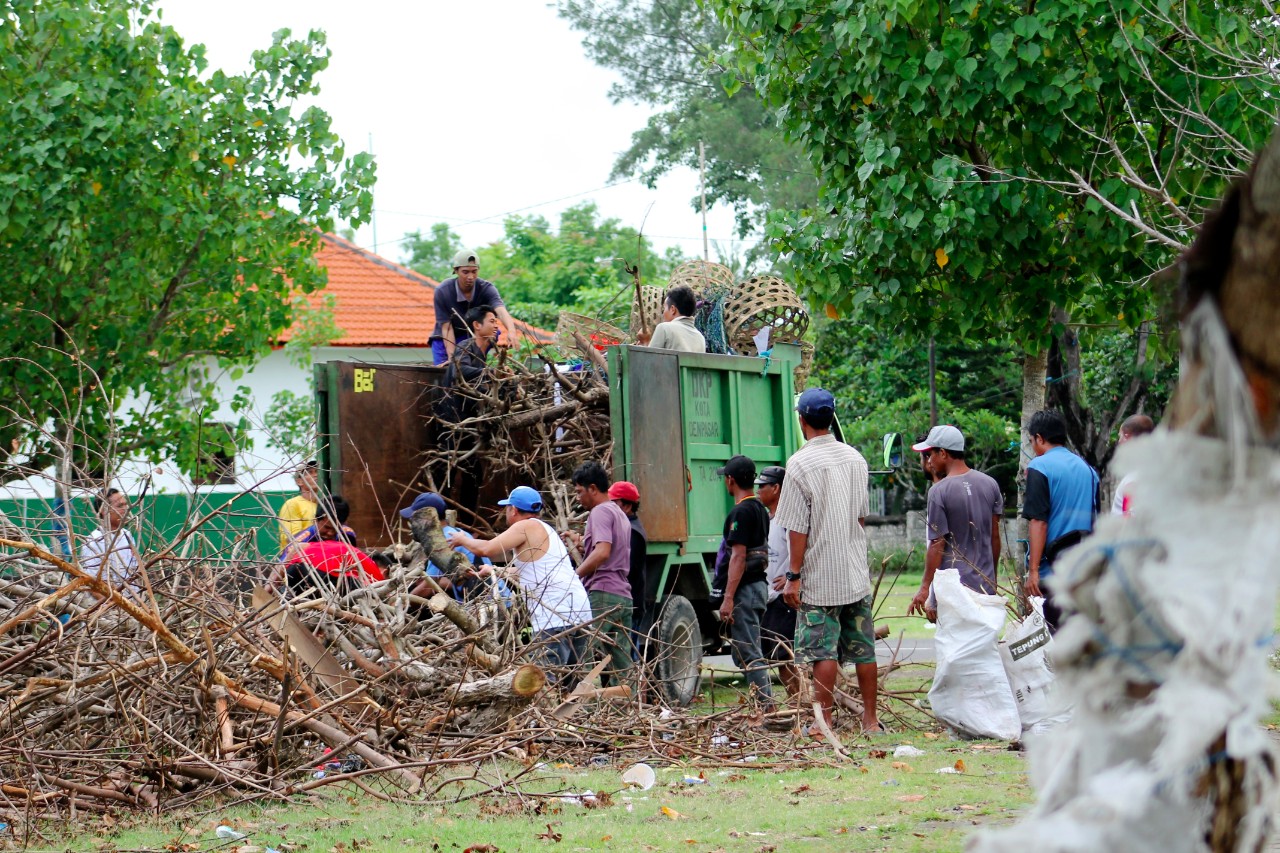
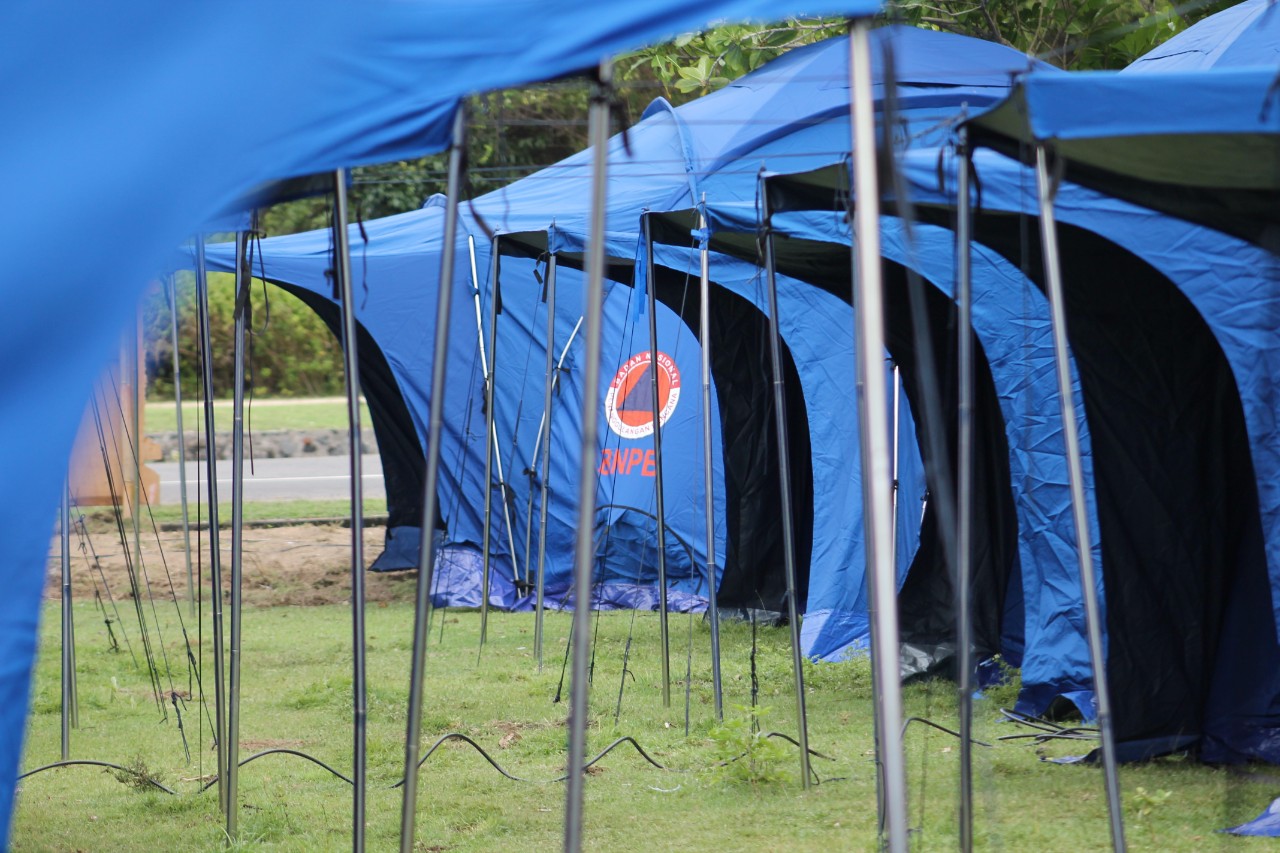
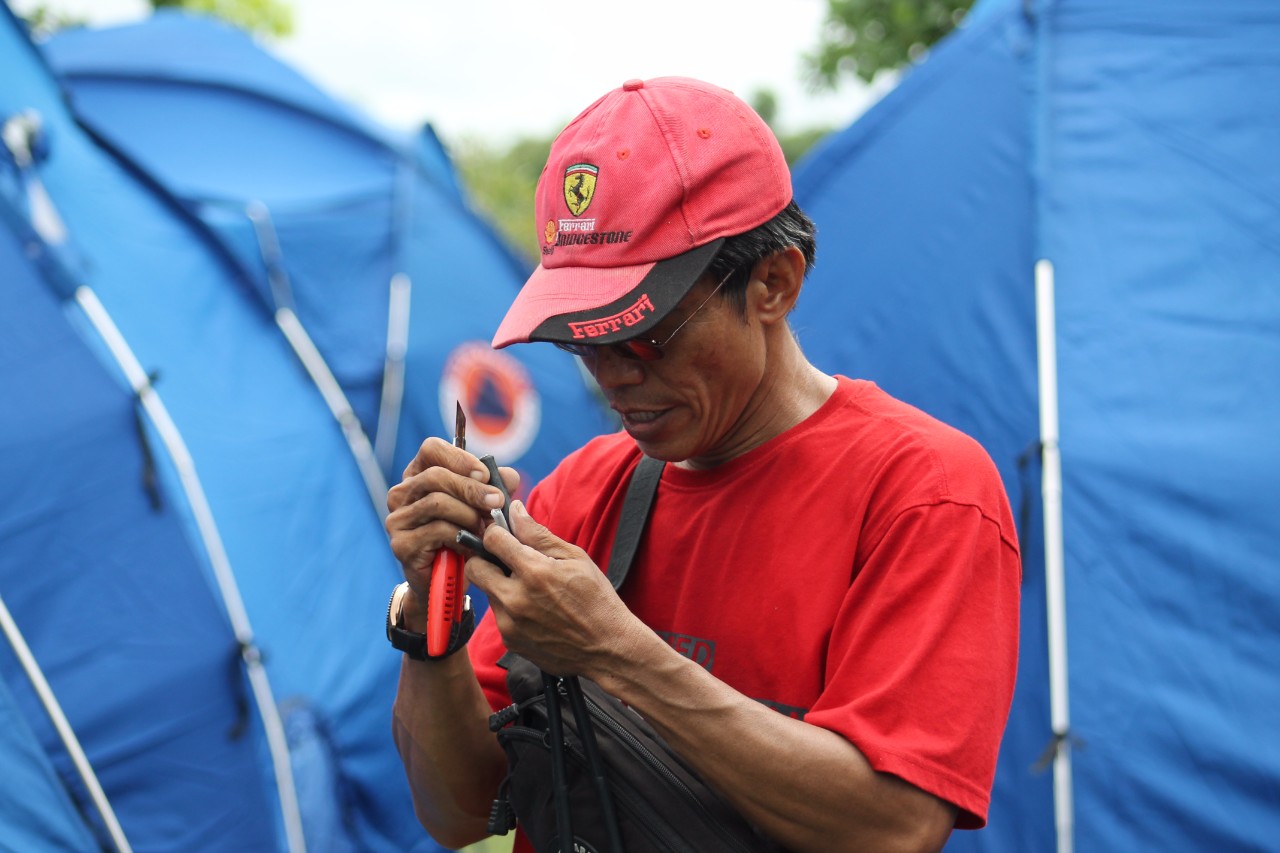
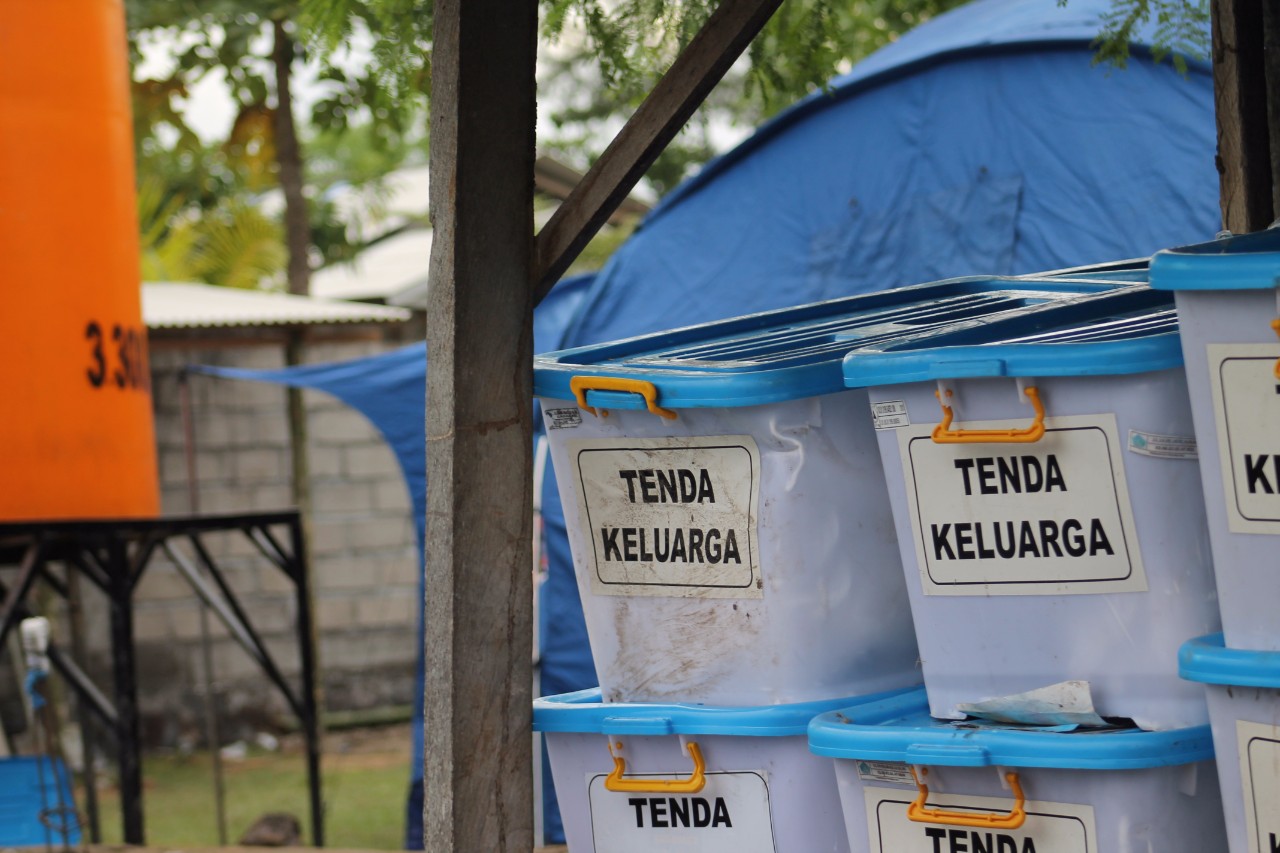
“When I first came here on Jan. 4, I saw a humanitarian tragedy and I couldn’t not do anything. People were just sleeping on the pavement, the women sleeping in the field,” Priyanto told Coconuts Bali.
But Priyanto sees his work in Kampung Bugis is about much more than helping the evicted villagers survive. Like the volunteers helping the children, Priyanto is also worried about the psychic trauma suffered by the villagers.
“Their land: gone. Their homes: gone. Their belongings: gone. Considering that, that makes a place vulnerable to radicalism,” he said.
If you think Priyanto is just being paranoid, then think again. The humanitarian described an instance where an evicted Kampung Bugis villager came up to him and asked him how he could join ‘the fight’ in Syria. Priyanto says he was able to talk to man out of it, but he’s still concerned.
“I have my eye on him.”
At the moment, the new BNPB tents have been set up in a cluster on land that Priyanto says was promised—but never handed over—to Serangan residents at the time of the reclamation in the 90s under a MoU. It’s Priyanto’s hope that this land can be officially handed over to those who lost their homes in Kampung Bugis, but it’s not so clear at the moment if this can become a reality.
The evicted families seem to have all but given up hope that they could ever return to live in Kampung Bugis since their entire village, all their houses, are an empty lot of dirt now. Fighting the family that holds the deed to the land seems futile, they say, because the family already went to Supreme Court and won the land rights case.
Attorney Rizal Akbar, who is representing the evicted Kampung Bugis residents, called the demolition a violation of human rights and on the evictions said he would file a judicial review of the Supreme Court decision based on new evidence showing that a forged document had been used to justify the action.
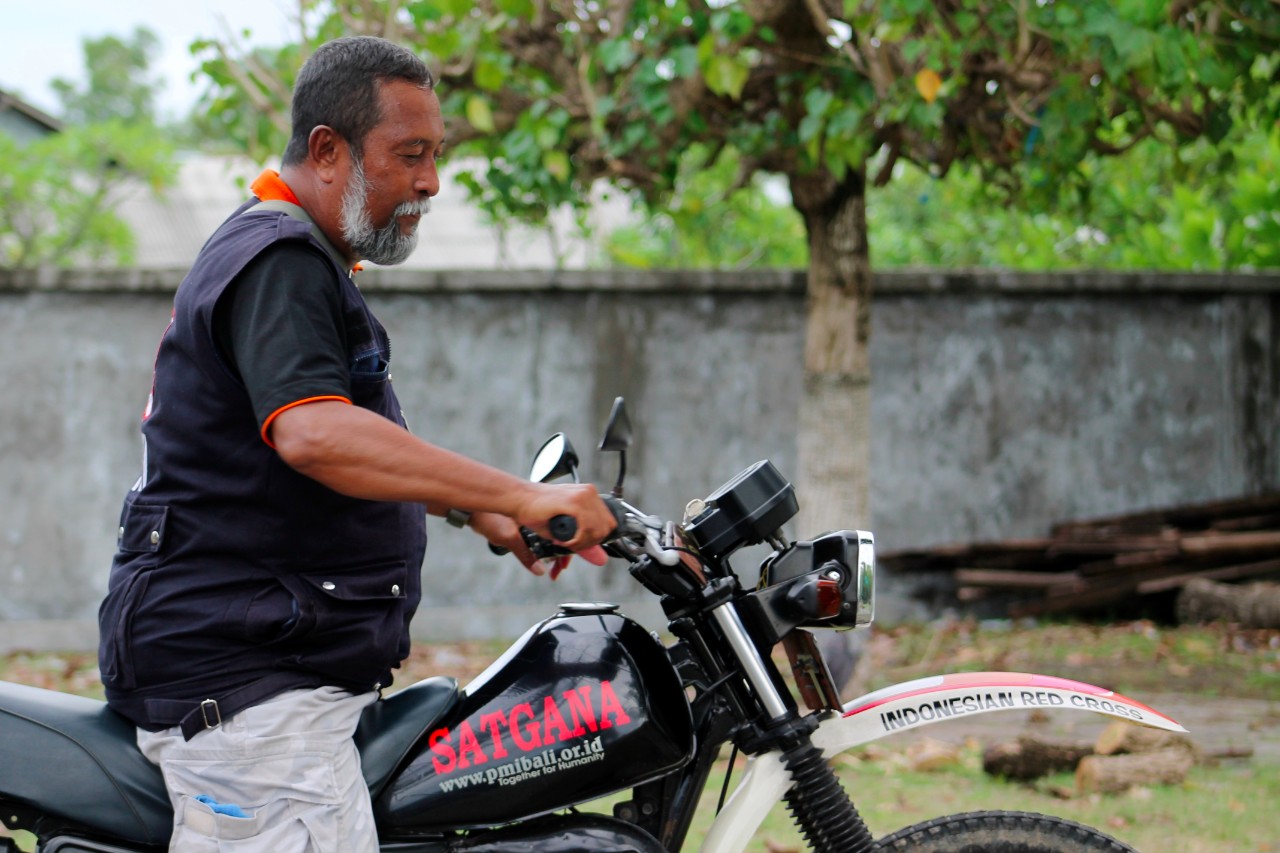
But with no developments reported since the day of the eviction, things aren’t looking good for the newly homeless Kampung Bugis residents and, for now, the Supreme Court’s decision still stands.
In the meantime, PMI and BNPB say they are staying with the Kampung Bugis residents for the foreseeable future, doing what they can to help them.
“As long as they need me, I’ll be here,” Priyanto told us, before dashing off on his trail bike to help out someone else in the neighborhood.
Words and photos: Julianne Greco/Coconuts Bali




